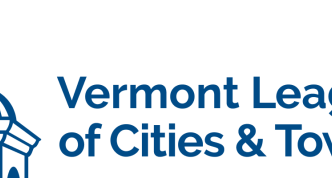Open Meeting Law resources have been updated to reflect revisions to the law from the 2025 legislative session. Text of Bill
January 1, 2025 - New Open Meeting Law training requirements took effect
June 9, 2025 - Act 51 (2025) changes took effect.
- Require the posting of meeting recordings when the minutes are posted, as opposed to when the minutes are approved
- Change the definition of “undue hardship”
- Add an exception to the law’s recording requirements for non-advisory public bodies’ site inspections or field visits
- Allow meeting notices to be posted in a neighboring town if there are not enough public places within the municipality’s borders
- Require meeting agendas to include sufficient details on the specific business to be discussed and details on proposed executive session, if included
- Add a requirement to vote to exit executive session (not just enter it)
- Add two allowances for executive session (one being cybersecurity if jeopardizing public safety)
- Defines “disturbs any lawful assembly or meeting of persons” for purposes of managing meetings, consistently with our past guidance.
General Information
In Act 133 (2024) and Act 51 (2025), the Legislature made permanent changes to the Open Meeting Law. They are summarized in the resources below, which include a webinar that incorporates the 2024 changes. Note that the VLCT webinar is not the required annual training offered by the Secretary of State. Beginning January 1, 2025, the law requires annual OML training for State chairs of non-advisory (“decision-making”) bodies and for local chairs of legislative bodies, municipal managers, and mayors.
Access the Vermont Secretary of State's required training, here: Open Meeting Law Training
Transparency is an essential element of open and democratic government. In Vermont, the primary means of providing transparency are the State’s open meeting law, 1 V.S.A. §§ 310-314, and the public records law, 1 V.S.A. §§ 315-320. These laws implement the command of Chapter I, Article 6 of the Vermont Constitution that officers of government are “trustees and servants” of the people and are “at all times, in a legal way, accountable to them.”
The Open Meeting Law clearly emphasizes the openness of and accessibility to government. It declares that “All meetings of a public body are declared to be open to the public at all times, except as provided in section 313 of this title [on executive sessions].” 1 V.S.A. § 312(a). The Open Meeting Law and its requirements are meant to empower the public to play an effective role as not only an active participant in government but also a check on it as well.
Every municipal board, council, commission and committees (legally defined as “public bodies”) of a municipality is required to comply with the Open Meeting Law. The Law applies when there is (1) a quorum of a public body; (2) involved in a discussion or taking action; and (3) the subject matter of the discussion is one over which the body has authority or responsibility.
Scroll down to view our current Open Meeting Law Resources.
Disclaimer: This resource is only intended to provide information and it does NOT constitute legal advice. Readers with specific legal questions are encouraged to contact an attorney. The use or downloading of this resource does NOT create an attorney-client relationship and will not be treated in a confidential manner.
If you have additional questions please use the ask a question button to submit them.







